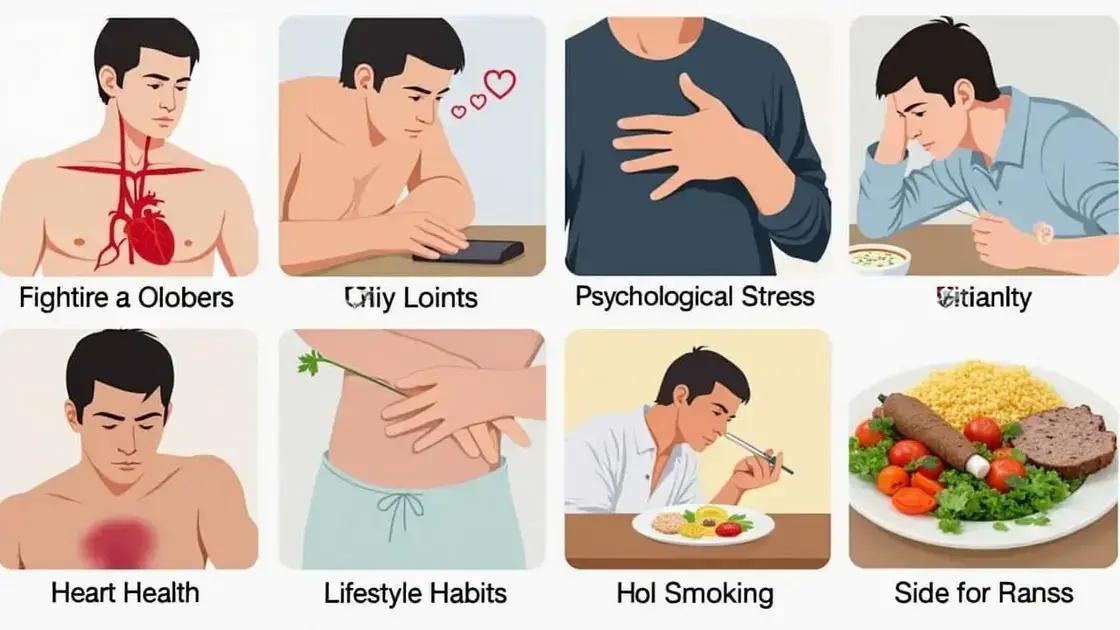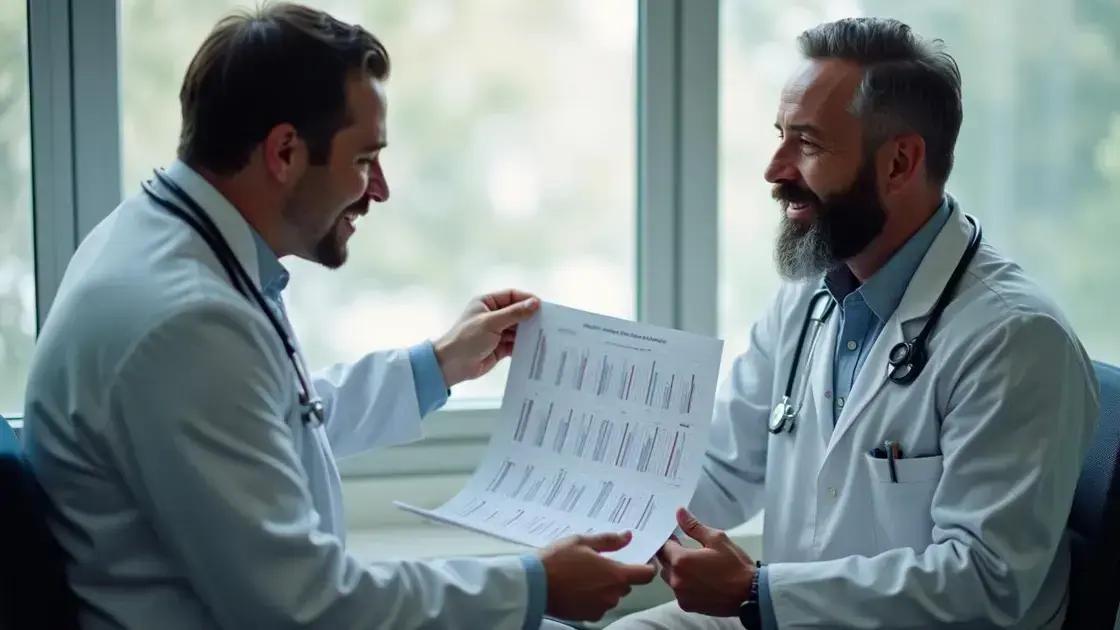Erectile dysfunction (ED) does not always require medication, as various non-medication treatments are available, including lifestyle changes, therapy, and natural remedies. Consulting a healthcare professional is essential for determining the most effective approach based on individual needs and underlying health conditions.
Erectile dysfunction affects millions of men worldwide, leading many to wonder, “Does erectile dysfunction always require medication?” This common condition can stem from various causes, including psychological factors and physical health issues. Fortunately, there are many non-medication options available. In this article, we will explore the underlying causes of erectile dysfunction, effective non-medication treatments, and when medication might be necessary to help you regain confidence and intimacy.
Understanding Erectile Dysfunction

Erectile dysfunction (ED) is a condition that affects a man’s ability to achieve or maintain an erection suitable for sexual activity. Understanding ED is crucial, as this can help reduce stigma and encourage individuals to seek help.
ED is not just a natural part of aging and can occur at any age. It may signal other health issues, including heart disease and diabetes, which is why understanding it is important.
Signs and Symptoms
Common signs of erectile dysfunction include difficulty getting an erection, trouble maintaining an erection, or reduced sexual desire. These symptoms may vary in severity.
Emotional Impact
The emotional and psychological effects of ED can be significant. Men may experience feelings of inadequacy, anxiety, or depression. It’s vital to recognize that these emotions may worsen the condition.
Seeking Help
Many men hesitate to discuss erectile dysfunction with their partners or healthcare professionals. However, open communication is essential. Seeking help early on can lead to better outcomes.
Causes of Erectile Dysfunction

Understanding the causes of erectile dysfunction is key to addressing this common issue. There are several reasons why a man may experience ED, and they can be categorized into physical, psychological, and lifestyle factors.
Physical Causes
Many physical health issues can lead to ED. These include:
- Heart Disease: Poor blood circulation affects blood flow to the penis.
- Diabetes: High blood sugar can damage nerves and blood vessels.
- Obesity: Excess weight can lead to hormonal imbalances.
- High Blood Pressure: This condition may harm arteries and impact blood flow.
- Hormonal Disorders: Low testosterone levels can reduce libido and contribute to ED.
Psychological Causes
Emotional and mental health can significantly affect a man’s sexual performance. Common psychological causes include:
- Anxiety: Worrying about sexual performance can create a cycle of anxiety.
- Depression: This condition can lead to disinterest in sex.
- Stress: Everyday pressures can impede sexual arousal.
Lifestyle Factors
Certain lifestyle choices can increase the risk of developing erectile dysfunction:
- Smoking: This can lead to vascular problems.
- Excessive Alcohol Use: Heavy drinking can interfere with sexual function.
- Lack of Physical Activity: Sedentary lifestyles can affect physical and mental health.
- Poor Diet: A diet high in processed foods may negatively impact overall health.
Non-Medication Treatments

Non-medication treatments for erectile dysfunction can provide effective alternatives for those who prefer not to use medication. These treatments focus on lifestyle changes, therapy, and natural remedies that can help improve sexual function.
Lifestyle Modifications
Making healthy changes in your life can greatly impact erectile function. Consider the following:
- Regular Exercise: Engaging in regular physical activity helps improve blood flow, reduce stress, and enhance stamina.
- Healthy Diet: Eating a balanced diet rich in fruits, vegetables, whole grains, and healthy fats can support overall health and improve erectile function.
- Weight Management: Maintaining a healthy weight reduces the risk of diabetes and heart disease, which are linked to ED.
Psychological Counseling
Since emotional health plays a significant role in erectile dysfunction, counseling may be beneficial:
- Therapy: Speaking to a psychologist or counselor can help address anxiety, depression, or relationship issues that may contribute to ED.
- Couples Therapy: Involving a partner in therapy can enhance communication and intimacy, thus easing performance anxiety.
Pelvic Floor Exercises
Strengthening the pelvic floor can also help:
- Kegel Exercises: These exercises target the muscles involved in ejaculation and can improve control over erections.
Herbal Remedies
Some natural remedies may also aid in treating ED:
- Ginseng: This herb has been suggested to improve erectile function.
- L-arginine: An amino acid that may help improve blood flow.
Vacuum Devices
Another effective non-medication option is the use of vacuum erection devices:
- How They Work: These devices create a vacuum around the penis, drawing blood into it and causing an erection.
When to Consider Medication

Considering medication for erectile dysfunction (ED) is a significant step. It is important to know when to consult a healthcare professional for this option. Here are some guidelines to help you decide:
Persistent Symptoms
If you have experienced erectile difficulties consistently over several weeks or months, it may be time to consider medication. Occasional problems can be caused by stress or fatigue, but regular issues may indicate a more serious condition.
Underlining Health Conditions
For men with existing health problems like heart disease, diabetes, or hormonal imbalances, medication could be beneficial. These conditions can contribute to ED, and addressing them with medication may help improve sexual function.
Impact on Quality of Life
If ED is affecting your relationships or causing emotional distress, medication might be a solution. Discussing your situation with a healthcare professional can help determine the best option for your needs.
Success with Non-Medication Treatments
If you have tried non-medication treatments without success, considering medication may be the next step. Sometimes, a combination of therapies can yield the best results.
Healthcare Professional Advice
Consulting your doctor is essential to discuss symptoms, medical history, and possible treatments. They can provide guidance on the best medications, potential side effects, and how to use them safely.
Consulting a Healthcare Professional

Consulting a healthcare professional is an important step when dealing with erectile dysfunction. They can provide guidance, support, and treatment options tailored to your specific situation.
Why See a Doctor?
Many men feel embarrassed to discuss erectile dysfunction, but doctors are accustomed to these discussions. Seeking help can improve your health and quality of life.
Preparing for Your Appointment
Before your visit, it can be helpful to:
- List Symptoms: Note how often you experience ED and any related symptoms.
- Prepare Medical History: Be ready to discuss any existing health issues, medications, and lifestyle factors.
- Write Questions: Prepare questions about treatment options, side effects, and what to expect.
Types of Questions to Ask
During your appointment, consider asking:
- What might be causing my ED?
- What treatment options do you recommend?
- Are there lifestyle changes that could help?
- What are the potential side effects of treatments?
Follow-Up Care
It’s important to have follow-up appointments to monitor progress and make any necessary adjustments. Regular communication with your doctor ensures you get the most effective care.
In Conclusion: Understanding Erectile Dysfunction and Treatment Options
Erectile dysfunction is a common condition that can have various causes, from physical health issues to psychological factors. Recognizing when to consider medication and the importance of consulting a healthcare professional is crucial for effective management.
Non-medication treatments, such as lifestyle changes and therapy, can also play a significant role in improving erectile function. By taking the right steps and seeking professional advice, individuals can regain confidence and enhance their quality of life.
Don’t hesitate to reach out for help—there are many options available to address erectile dysfunction and achieve a fulfilling sexual life.
FAQ – Frequently Asked Questions about Erectile Dysfunction
What is erectile dysfunction?
Erectile dysfunction (ED) is the inability to achieve or maintain an erection suitable for sexual activity. It can stem from various physical and psychological causes.
When should I consider medication for ED?
Consider medication if you experience persistent symptoms, have underlying health conditions, or if ED is affecting your quality of life.
What non-medication treatments are available for ED?
Non-medication treatments include lifestyle changes, therapy, pelvic floor exercises, herbal remedies, and vacuum erection devices.
How can lifestyle changes help with ED?
Regular exercise, a healthy diet, managing weight, and reducing alcohol or smoking can significantly improve erectile function and overall health.
Why is it important to consult a healthcare professional?
Consulting a healthcare professional helps identify the root cause of ED, explore treatment options, and receive personalized care and guidance.
What should I expect during a doctor’s appointment for ED?
You can expect to discuss your symptoms, medical history, and potential treatment options. It’s helpful to prepare questions and discuss any concerns.













